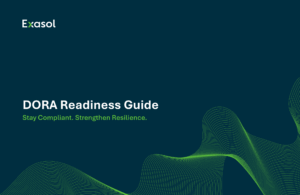
The Strategic Role of Data Sovereignty in AI
The data sovereignty revolution is here and is no longer a legal footnote — it’s now a strategic concern for AI-driven enterprises. As businesses move deeper into AI adoption, they’re beginning to realize that data isn’t just a resource; it’s a regulated asset. Where your data is stored and processed, who can access it, and under which authority it falls will shape everything from model performance to market access.
This article outlines why data sovereignty matters for your AI roadmap, the risks and opportunities tied to compliance, and how forward-thinking companies are adjusting their infrastructure and strategy accordingly.
Why Data Sovereignty Now Matters for AI
For AI systems to work, they need access to large volumes of high-quality data, often collected across multiple regions. But as more countries impose restrictions on cross-border data flows, including the General Data Protection Regulation (GDPR), China’s PIPL, and India’s DPDPA, companies face a new reality: your AI infrastructure must now adapt to legal boundaries.
Key implication: Developers may need to retrain or segment AI models that rely on global datasets by region, which increases cost, complexity, and latency. In sectors like finance, healthcare, or defense, regulatory restrictions on data location already dictate how and where AI models are trained, deployed, and monitored. For global businesses, this means AI development must be regionalized in alignment with data sovereignty laws, or risk non-compliance.
AI Innovation vs. Data Borders
AI innovation thrives on openness — open data, open research, open infrastructure. This includes the rise of generative AI, which depends heavily on diverse and regulated training data. Data sovereignty introduces friction into that model by reintroducing national borders into digital ecosystems. But it also creates incentives to rethink data architectures, prioritize ethical design, and build trust.
- Model performance can suffer if training datasets are incomplete due to residency laws.
- AI ethics become enforceable when tied to national values and jurisdictional oversight.
- Data localization opens new business opportunities, especially in countries where trust and control are prerequisites for digital adoption.
The companies leading this shift aren’t just reacting to compliance — they’re investing in sovereign AI infrastructure: cloud-neutral, auditable, and geographically distributed.
Security and Compliance as a Competitive Advantage
Boardrooms often treat compliance as a cost center. But in AI, compliance is now a prerequisite to innovation.
- Hosting models and data in the wrong geography can trigger fines, customer backlash, or outright bans.
- Governments increasingly demand in-region infrastructure for critical industries and are offering incentives to businesses that comply early.
Organizations that treat data sovereignty as a strategic pillar, not just a risk, are gaining an edge. They’re:
- Deploying AI inference closer to the user, reducing both latency and legal risk.
- Aligning product strategies with local governance expectations.
Building cross-functional teams that integrate legal, engineering, and AI from day one.
Global Collaboration, Local Constraints
Data sovereignty doesn’t mean isolation, but it does require balance. As countries enforce their own data laws, global AI strategies must evolve from “build once, deploy everywhere” to region-aware architectures.
Companies must operate across a patchwork of regulations, especially those governing cross-border data transfers.
This calls for:
- Shared ethical frameworks between international partners
- Interoperable AI systems that can respect local data rules while still functioning globally
- Strategic partnerships with local providers or government-led infrastructure programs
Done right, sovereignty-driven constraints — including compliance with data protection law — become drivers of resilience, enabling trust, speed-to-market, and long-term compliance in regions where data sensitivity is high.
Data Sovereignty and the Enterprise Stack
From infrastructure to analytics, data sovereignty now touches every layer of the enterprise stack, particularly where sensitive data is involved. It influences vendor selection, cloud architecture, data governance, and ultimately, customer experience.
What leading enterprises are doing:
- Choosing cloud-agnostic platforms to avoid lock-in or geopolitical exposure
- Building multi-region AI pipelines with in-country compute and model hosting
- Embedding compliance into the data layer — not bolting it on after deployment
- Repatriating workloads from public cloud back to on-premises or private infrastructure to regain control over sensitive data and reduce compliance exposure
“Cloud repatriation isn’t just about cost — it’s about restoring control, transparency, and legal certainty in how enterprise data is managed, especially in the face of rising concerns over data breaches. For AI and analytics, it ensures performance and sovereignty are no longer in conflict.” – Madeleine Corneli, Product Lead, Exasol
This approach requires collaboration between legal, data security, product, and engineering. For global firms, sovereignty is no longer an IT issue — it’s a board-level concern with financial, operational, and reputational implications.
Emerging Technologies: Risk or Enabler?
Technologies like blockchain, confidential computing, and privacy-preserving AI (e.g., federated learning) are reshaping how companies manage sovereignty.
- Blockchain offers auditability and decentralized control, useful for proving data lineage or cross-border accountability.
- Confidential computing enables in-country data processing without full infrastructure replication.
- Federated learning allows model training across borders without moving data.
The right tech choices can reduce sovereignty-related friction, but only if they’re aligned with your compliance strategy.
Investments in these areas aren’t just futureproofing — they’re strategic enablers for operating in high-regulation markets.
The Business Case for Sovereign AI
C-suite leaders increasingly view data sovereignty not just as a legal hurdle, but as a market differentiator. Especially in privacy-sensitive or heavily regulated industries, trust is a competitive advantage.
Key outcomes of prioritizing data sovereignty:
- Accelerated access to markets with strict compliance barriers
- Higher customer trust and data-sharing willingness
- Reduced risk exposure in geopolitical or legal conflicts
- Ability to co-develop AI with public sector or national infrastructure partners
The EU’s Leadership in Data Sovereignty
The European Union (EU) has emerged as a global leader in defining the boundaries of digital sovereignty, starting with the GDPR and expanding into proposals like the EU AI Act, Data Act, and Digital Markets Act. These regulations not only protect personal information and individual rights but also reshape how businesses must operate technologically and contractually within Europe.
For companies working in or with the EU, compliance is not optional — it’s foundational to market access and long-term customer trust.
Key characteristics of the EU’s approach:
- Strict data residency requirements for personal data and other sensitive categories
- Accountability and transparency mandates for AI systems (especially high-risk models)
- A growing emphasis on European-based infrastructure and analytics platforms that are not subject to extraterritorial access (e.g., CLOUD Act exposure)
For non-EU vendors, this introduces legal ambiguity and trust barriers. For European-native platforms like Exasol, it’s an opportunity to provide trusted, compliant, high-performance alternatives for analytics and AI workloads.
How Exasol Supports Sovereign AI and Analytics
Exasol is built to deliver maximum performance with full sovereignty control, enabling companies to meet EU regulatory standards without sacrificing speed or scale. As a European-headquartered provider, Exasol offers a critical differentiator for enterprises looking to avoid dependencies on hyperscalers or U.S.-based vendors.
Key strengths that align with sovereignty-driven enterprises:
- Full control over data location: Exasol can be deployed on-premises or hybrid, meeting even the strictest residency rules.
- No vendor lock-in: Exasol is cloud-neutral and integrates seamlessly into hybrid or multi-cloud environments.
- Audit-ready architecture: Built-in performance transparency and governance features support compliance with GDPR, the upcoming EU AI Act, and industry-specific frameworks.
- Designed for analytics and AI: With its high-speed in-memory analytics engine and native Python/R integrations, Exasol supports real-time insights and AI model deployment — all within sovereign boundaries.
Whether you’re building a localized AI model, enabling BI for financial regulators, or running complex analytics in healthcare, Exasol ensures compliance is embedded into performance, not bolted on.
Check out Exasol’s AI Lab or read more about our AI capabilities.
Looking Ahead: What CxOs Should Prepare For
Data sovereignty isn’t a static policy — it’s a shifting constraint layer that will only tighten over the next 3–5 years. Businesses that rely on centralized AI platforms, uncontrolled data sprawl, or non-compliant infrastructure may soon find themselves facing escalating costs, reputational risk, or exclusion from key markets.
CxOs should proactively:
- Map their data flows: Know where data resides, where it moves, and which laws apply
- Reassess vendor risk: Ensure critical AI and analytics platforms are aligned with local regulations
- Shift compliance left: Embed governance into infrastructure and data architecture, not just policies
- Make trust visible: Customers and regulators alike are demanding proof of compliance, not just promises
Companies that treat sovereignty as a strategic lever, not a regulatory tax, will be positioned to lead in trust-based markets, navigate geopolitical uncertainty, and scale AI responsibly.
Final Thought: From Reactive to Proactive
The importance of data sovereignty continues to grow, as the regulatory environment becomes more complex and high-stakes. The companies that win in this space will be those who don’t treat sovereignty as a compliance sprint, but as an ongoing strategic capability.
This is no longer just about where your data sits.
It’s about who controls it, who profits from it, and who sets the rules.
Artificial intelligence (AI) will only scale sustainably when it respects sovereignty, not works around it.





